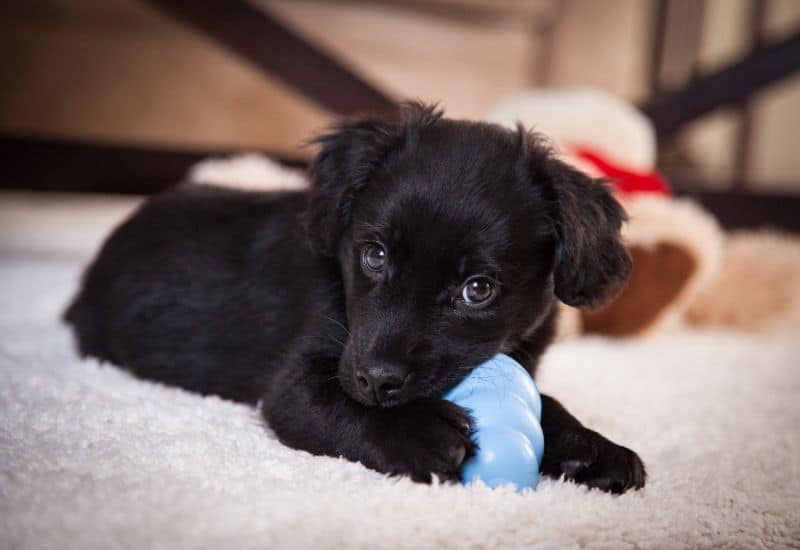7 Puppy Behaviors You Shouldn’t Overlook (or Excuse)

Puppies may be quite clumsy at times, but they are actually incredibly skilled. They have the special abilities to leap into our hearts, cover us from head to know in puppy kisses, and make us wonder what life was like before their adoption and homecoming.
Despite their scrumptious goodness, some puppies have terrible manners. They don’t mean to misbehave, they really just don’t know that there are alternatives to their fledgling canine instincts. Because most owners of young dogs are blinded by their cuteness, we’d like to weigh in on 7 puppy behaviors that can improve over time, and with the right methods.
Controlling the Environment
Know that you’ll be overwhelmed by your puppy’s adorable antics, and be prepared to stand your ground if/when they misbehave. Of course, this is an opportunity for education, training and growth. Be consistent, firm and patient. Promptly react with positive reinforcement techniques, such as ignoring unwanted behavior and rewarding those you prefer.
Never scold or punish your puppy. Remember, they will learn better if you follow a modicum of neutrality and calmness.
Problematic Puppy Behaviors
There are more than 7 puppy behaviors that may require attention, but the following top the list:
- Soiling in the house – Teaching your puppy when and where to go to the bathroom is a huge and necessary undertaking, and sets the tone for all other training. Establishing a routine that hinges on regular bathroom breaks is critical, especially directly after a meal or waking up. Crate training them can make this process easier on both of you.
- Socialization foibles – Jumping on people or ignoring space bubbles are common puppy behaviors, but ones that shouldn’t be ignored. It may be exhausting to battle this, but once your puppy understands the basics of obedience they’ll know when to get down or heel.
- Hyperactivity – Some puppies may be more excitable than others, and their associated puppy behaviors (like running in circles, vying for attention, and urinating in the house) can be helped with additional outside time. Exercise is a great outlet for young dogs in need of stimulation.
- Mouthiness – Puppies like to nibble, and sometimes that mouthiness can develop into full-fledged biting. Sure, it might be innocent enough (at first) but if you allow this behavior to continue it might be hard to break in an adult dog. Never use your hand as part of a game and communicate clearly that biting is unacceptable.
- Barking – Nobody wants to live with (or around) excessive barking. While canine vocalization can take many forms, including whining, barking should be addressed promptly with a “no” command. Have patience when establishing this and use treats to motivate them until demonstrated mastery.
- Chewing – Puppies are losing baby teeth and growing adult teeth, a process that is eased by constant chewing. Always provide safe, durable chew toys. If your puppy opts to chew other things, such as shoes or upholstery, encourage them with alternatives.
- Separation anxiety – To ease any feelings of stress or fear while you’re away from your dog, create moments of calm for them. This might entail rigorous exercise prior to departure, or an opportunity to chew on a peanut butter snack. Act neutral prior to leaving and when you return. Provide distraction for your dog by way of doggie day camp, dog walker, or pet sitter if you need to be apart for longer than a couple hours at a time.
It’s Going to Be Okay
You’ve got your work cut out for you, but puppy behaviors are always improved with love, aging, patience, and positive reinforcement. If you have further questions about your puppy’s behaviors, please let us know.
